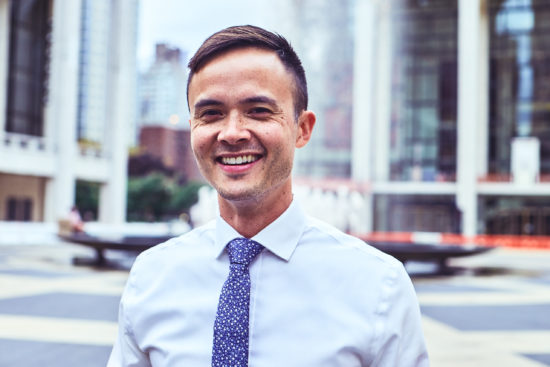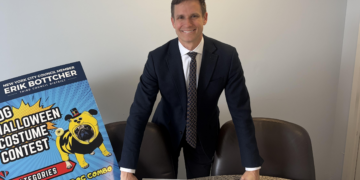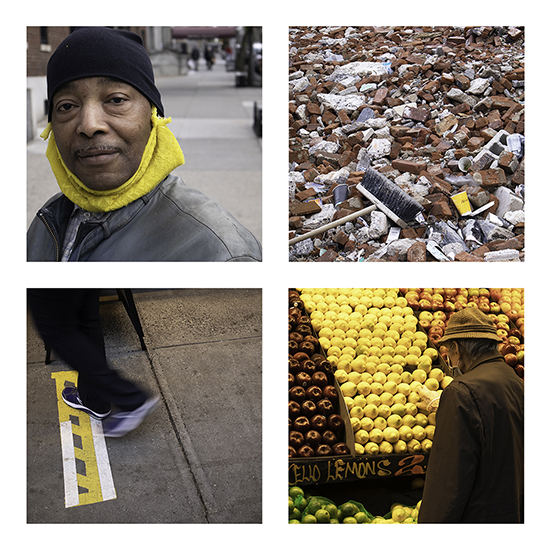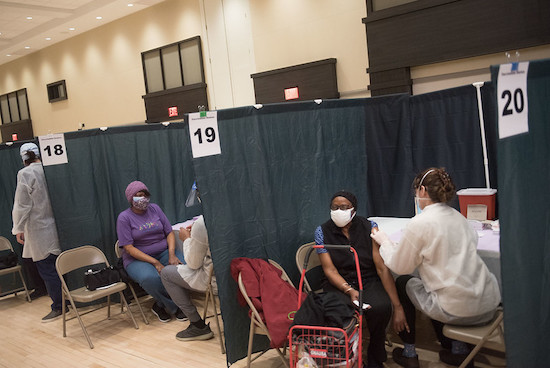
By Carol Tannenhauser
Jeffrey Omura, 36, is an actor, activist, labor leader, and Democratic candidate for the New York City Council seat from District 6, representing most of the Upper West Side. If he wins, he will be the first openly gay council member from the district, and apparently “the first Japanese-American person to be elected to public office in New York State,” according to Daniel Inouye, Ph.D., a research scholar at New York University.
Omura came to New York City in 2006 from Lansing, Michigan, “for the same reason many New Yorkers do,” he said in a recent phone interview with West Side Rag, “to pursue my artistic career.” He is the fifth of six candidates WSR is profiling, in advance of the June 22nd Democratic primary.
Jeffrey Omura: The moment I first stepped foot in New York I knew this was the place I wanted to be. My first job in the city was at Shakespeare in the Park — Romeo and Juliet. It was absolutely a dream, and that’s when I fell in love with this neighborhood. But I couldn’t afford it then. I’m lucky I can afford it now!
West Side Rag: When did you finally move here?
JO: Five years ago. I’ve been a working-class actor for 14 years, and then I got a Liberty Mutual commercial — yeah, the one in front of the Statue of Liberty. I’m a member of SAG-AFTRA, the union for film and TV actors. We have some phenomenal contracts and I was paid really well. I’m so grateful to my unions. The other one is Actors’ Equity, which represents theater actors and managers. It is their contractually negotiated agreements that allow me to afford to live in New York City. That’s why I’m a labor leader. That’s why I’m an advocate for workers.
WSR: Tell me a little about your labor organizing.
JO: Back in 2016, when I was working for an Off-Broadway theater and not making enough money to get by, I joined with some colleagues and organized a campaign called “Fair Wage Onstage.” It resulted in thousands of actors and stage managers receiving major wage increases. Then, this past summer, when the U.S. Congress was negotiating the Heroes Act, it became evident that the arts were going to be left out. So we organized a new campaign called “Be An Arts Hero” to lobby Congress, and, in the stimulus package passed in December, we got $15 billion of direct arts relief that was the result of having conversations with more than 60 U.S. Senate offices.
WSR: Okay, so how did your organizing history lead to you running for City Council from the Upper West Side?
JO: I didn’t think I was going to get involved in city politics until this past year when the pandemic hit. As an actor and elected member of the Actors’ Equity national board, I’ve seen firsthand how the pandemic has wiped out the arts and culture industry. All our employers are shut down. Seventy percent of our workers are still unemployed. Arts and culture are an economic engine and jobs multiplier for this country, and that’s nowhere truer than right here in New York City, where the arts and culture sector makes up a greater portion of our economy than anywhere else. The Upper West Side has more artists than any other neighborhood in the city, and probably more arts patrons. It’s full of people who love and patronize the arts. It’s a major reason many of us choose to live in the city. We pay exorbitant rents for tiny apartments in exchange for being in the center of a global capital of arts and culture where we have access to the greatest art scene in the world.
I’ve been lobbying the City Council for arts funding for the last few years and I’ve gotten to know many of our arts advocates who are currently on the Council, and I realized they’re all term-limited; after the 2021 election there may be no one left to advocate for the arts and culture community at a time when we need it desperately. I realized that the District 6 Council seat was open and it would be a good opportunity for someone to run to make sure that arts and culture are part of the conversation.
WSR: What about all the other issues facing the Upper West Side? Are you a one-issue candidate?
JO: My team and I have spent a lot of time over the last few months building out our platform, because there are a lot of important things happening right now on the Upper West Side. I’ve been researching how to solve our housing and homelessness issues, and also how to best save our small businesses. I’ve been spending my afternoons walking around the neighborhood introducing myself to small business owners. My goal is to meet everyone in the district.
WSR: How specifically would you help small businesses?
JO: I think we have to prioritize property tax reform. A lot of properties are not worth what they once were, which means we can’t be charging the same tax that we currently are, and that’ll help to reduce the rents. We can also work with the state to eliminate the minimum rent provisions that are in some mortgages that are preventing landlords from lowering the rents. And then we can do everything we can to eliminate regulatory hurdles for small businesses. I’m proposing creating a one-stop shop where, if you’re looking to open a business, there’s one person you have to talk to in the city government who walks you through all of the regulatory processes, so that it’s as easy as possible for anyone to start a business or keep their business open. Right now it’s a labyrinth, and often there’s a language barrier. Many I spoke to were daunted.
WSR: Another daunting problem is homelessness.
JO: Homelessness is as bad as it’s ever been, and because we closed down the shelters and the subway at night, it’s a lot more visible. There’s street homelessness, and then, the Upper West Side, of course, has been experiencing the three hotels. The city could have done a much better job of communicating with the public and engaging the community residents so that everybody knew what was going on and exactly who was being moved into these hotels. Not only that, but when community residents started seeing more people living on the street and incidents of drug use and indecent exposure, they started conflating the men living in the hotels with the street homeless. They’re two very different populations, with two very different sets of needs.
WSR: How do you think our elected officials handled The Lucerne situation?
JO: The problem was that they chose sides very early and our local politics started mirroring our national politics, and suddenly we have this divide and people stopped talking and listening to each other. I don’t think our elected leadership helped by standing on one side and calling the other side racist. Ultimately, both sides agree that the men living in these hotels need access to resources. Our elected leadership could have brought both sides together, had a conversation, lowered the temperature, and pooled our collective resources to get these men the services they need, but, instead, both sides dug their heels in. And now we have this standoff.
WSR: What can be done about street homelessness?
JO: Really figure out a way to get everyone the mental health resources they need. One way is by publicizing Kendra’s Law, which allows families to get a court order for their loved ones who are experiencing mental illness, to get them the outpatient treatment they need. But I’d like to tie this back to arts and culture. The arts have an incredible ability to provide catharsis. It’s the thing that makes us feel human, that connects us with with each other.
WSR: What do you think the Lucerne controversy has revealed about our community?
JO: People are concerned about public safety — and the city could do a lot to alleviate those fears by talking about the root causes of some of these safety issues. We’ve been in a pandemic for the last year. The economy’s been shut down. We’ve got 12% unemployment. We have food insecurity. People are desperate for money. When you look at crime statistics, the ones that stand out are the ones like burglary. These are crimes of desperation.
WSR: The ones that stand out are also the random stabbings, slashings, sucker punches, and shoves in front of subways! Do you think putting more police on the street could prevent some of these crimes?
JO: There is no number of police that we add that would prevent someone who’s dealing with mental health issues from committing a random act of violence.
WSR: Where do you stand on defunding the police?
JO: After 9/11, we militarized our police and gave them a lot of things they don’t need. I think a lot of that money could be better spent with the Departments of Education, Health and Mental Hygiene, and Homeless Services. I’ve listened to many interviews with police officers and even some police union leaders, and they’re the first ones to admit they are not equipped or trained to respond to mental health calls.
WSR: Your thoughts on housing?
JO: We have to prioritize building a massive expansion of low-income, affordable housing, and especially permanent supportive housing for people who are currently homeless. I’m talking about moving away from the temporary shelter system, which is inherently unstable, and creating a permanent supportive housing system. Over a third of the homeless population is made up of children. I can’t even imagine what it’s like trying to study for school, especially in this time of remote learning, in a temporary housing situation. So let’s get them into permanent housing, because all of the academic research shows that the best way to end homelessness is to give people permanent homes.
WSR: How do you feel about running against Gale Brewer?
SO: Well, I have a tremendous amount of respect for her. But I think there are a lot of people in this city who could be extraordinary leaders and representatives on the city council.
WSR: Are you saying it’s time for a change?
JO: (laughing) I’m saying I think I would be a great representative.
WSR: It is unbelievable that if you win, you could be the first Japanese-American person ever elected to office in New York State.
JO: It is unbelievable, especially when you consider Japanese-Americans have been here for 140 years. My family has been here for three generations and people still always ask me where I’m from. There are currently five gay council members out of 51 and they’re all term limited. There are two Asian council members and they’re both term limited. Representation really matters.
WSR: Asian hate crimes are on the rise. Any thoughts?
JO: We have to be real about why this is happening. President Trump went on national television and, day after day, he used phrases like Kung Fu virus and Chinese virus. When I watched those press conferences, I knew exactly what he was doing. I’m interested in solutions, and I think we’re going to need some really progressive policy solutions to address many of the problems the Upper West Side and the city are facing.
WSR: How do you define progressive?
JO: Compassionate…empathetic…we prioritize everyone. My campaign slogan is “A Renaissance for All.” We want to make sure that our neighborhood is inclusive and welcoming.
This interview was condensed and edited for clarity.
Click on their names to read WSR’s profiles of Gale Brewer, Maria Danzilo, David Gold, and Sara Lind.
Next: Zack Weiner.









Does he or any other candidate understand that a large part of the Upper West Side’s homeless problem stems from the city dumping so many shelters here over the years? The conversion of The Lucerne was just the last in a long history abuse that we’ve endured because of weak (or hostile) representation.
As a business owner in the neighborhood, Jeffrey’s ideas about addressing real estate tax and regulatory issues are compelling. I also appreciate that he seems to take the issue of homelessness seriously and his point that local politicians chose sides early and made it divisive, is adroit. He seems like a good contender along with Carol.
Fellow business owner & completely agree! The homelessness, both street & shelter/SRO’s have caused numerous continued problems for businesses, as much as I want them to get the help and resources they deserve. I know quite a few businesses that have left or are planning on leaving if this situation doesn’t get improved.
We need a candidate who listens to us with these concerns and doesn’t shy away from acknowledging it & attempting to address it. I was surprised with how much I liked what Jeffrey said and he significantly increased my interest in him for this reason.
More police may not stop a severely mentally ill person from committing a violent act, but having more police, not less, is not a bad thing in and of itself. FYI – individuals living in unsafe neighborhoods want MORE police presence, not less.
One other thing: Mr. Omura wants to “tie street homelessness back to the arts?”
That’s great. Giving homeless men and women, and mentally ill homeless, tickets to Shakespeare and the latest MOMA exhibit will really address this problem.
Is this candidate living on our planet?
A & J’s daughter – is that really how you interpreted what he said?
I’m concerned about your reading comprehension.
I was somewhat skeptical due to his alliance with Lind but I came away from this interview quite impressed. He has clearly done his homework and met with and listened to the community.
My one big difference is that I feel strongly that though mental health programs are helpful, they cannot come at the expense of policing, and enabling the police to arrest and put away chronic repeat offenders, rather than repeatedly slapping them on the wrist.
Thank you WSR for a very helpful interview!
reply to Leon:
the police arrest people; the DA “puts them away.” The latter has nothing to do with the police.
I am curious as to what sort of crimes you want “repeat offenders” jailed for that they are not being jailed for now. Violent crimes and burglaries usually result in jail sentences.
Are you talking about jail sentences for loitering? Public urination? (how about we set up some public restrooms, like civilized cities?) jumping the turnstile?
Yes. Repeat offenders of quality of life crimes should go to jail. One time jumping a turnstile gets a slap on the wrist. Five times is a problem. If they are jailed and get out and do it again, they should get a longer sentence.
Police don’t bother responding to these issues because they know the offender will be back on the street shortly. Most of them would like to do something.
My suggestions don’t replace social service resources. Those are critical too. But if there is virtually no punishment for committing offenses, offenders are unlikely to stop.
“Enable the police to arrest and put away chronic repeat offenders.” Could not agree more, Leon.
Thank you WSR for a great opportunity to get to know Jeff better!
I was prepared to write this guy off talking about the arts, until he spoke with real clarity about property taxes, regulatory hurdles for SMBs and how local politics shouldn’t mirror national politics.
Finally, I can elevate him into the realm of candidates who are actually look at the levers of local governance! He can be passionate about the arts, but at least he’s looking at the real issues too.
The arts is not a real issue?
I’ve been looking to vote for ANYONE other than Gale and hadn’t been impressed by Lind or Weiner. After reading this, I now will be ranking Jeff number one. Even if he’s not 100 percent on the mark with police, I still respect his thoughtful plans for small business and the way he’s really paying attention to what our community is saying. I’ve been here a long time and this man is refreshing and what we need.
He says a few sensible things but he is wrong about landlords being prevented from lowering their rents due to clauses in their mortgages.
Such clauses might exist but they are easily negotiable if the space stays empty for a long time. The bank wants the landlord to pay its mortgage and has no interest in the landlord having no cash flow and not being able to pay back its loan.
In any case this is an issue between the landlord and its bank. Albany has no role or say in these negotiations.
What does he know about people and places outside Manhattan? He has to make decisions on issues that concern them too.
He has no experience outside of acting and Equity.
He says the same bromides that others do. It means nothing if you can’t present ideas as to how to accomplish these goals. Good thoughts don’t get housing built.
I’m also tired of people who haven’t lived in NY for a couple of decades running for office because they think they know NYC. They don’t.
He moved here when he was 21 years old. He’s been here 15 years. That’s a newcomer? C’mon.
It says he moved here 5 years ago.
He moved to New York City 15 years ago. He moved to the UWS 5 years ago. That is good enough for me.
I’m probably not voting for him (though this interview moved him up my list) but he has been here for 15 years. I think that is sufficient.
The UWS has too many know-it-alls like half the posters on WSR who have never lived outside of a 20 mile radius of the UWS. Someone who has interacted with people outside of our bubble could be a valuable resource.
For starters, I was born & grew up in Brooklyn to parents were NY natives. They taught me a lot of history. I have worked in neighborhoods that were very different from the UWS.
Ideas are a dime a dozen. If you don’t talk about how you are going to accomplish your goals, you haven’t said anything.
How are you going to get the municipal unions to follow along? Where are you going to get the money for supportive housing? That was supposedly the solution in the 1960s when they closed down the “mental” hospitals. How did that work out?
Where are you going to get the money to build low-income housing? The last time NYC was able to do that, which was right after WWII, the Federal government helped. Then they stopped.
If the people who moved to NYC had worked in organizations that were involved in these types of issues or worked for the government, that would be one thing, but many of them haven’t.
reply to M.pipik:
public housing was built through the 1960s, including here on the UWS. yes, fed govt helped.
The Mitchell-Lama program was built with state money through 1970s — no substantial federal assistance. it was all low and moderate income housing and was highly successful. See Gale Brewer’s recent WSR interview.
there was a lot of affordable, including low income, housing built in Koch era on city-owned (tax arrears) property. Granted, very little of that exists these days.
Excellent point about relative newcomers to the City.
Unlike the US Senate this job is about the potholes.
Too progressive for me – read between the lines!
I would say he is to the right of Lind, no?
I had the good pleasure of meeting Mr Omura this past weekend while he was getting signatures. He seemed like a confident, common sense candidate who is in this to be a true public advocate, not a climber. And his website is clearly focused on stimulating the economy by encouraging small businesses to fill vacant store fronts, reviving the arts and entertainment industry, and finding a common ground solution for homelessness. I’m excited to vote for him.
He mentions nothing about proper representation
for Senior Citizens, who also are in great
abundance on the Upper West Side. Many of them (including myself!) are professional
performers (and Equity members) -some retired
and many still working.
That’s one of the reasons Gale Brewer was (and is) so popular, as she has always met every need and problems of us Seniors.
The younger candidates seem to have no
knowledge or consideration of this
large generation of us.
He avoided direct answers about homelessness and spewed out the standard pablum about defunding. I did not hear him say he opposed defunding. Like pretty much all interviews, he dodged issues that he knows would cause him to lose votes.
The interviews need to be tougher. And where does he want to place the massive increase in low income housing
NYC attracts performing artists nationwide and international. So it is a good idea to have an actor like him taking a counsel members seat for at least one term.
He might find new ways to advertise our performing arts outside of NYC, establish sustainable living for artists even after retirement, trap our local teenagers in art education that could prevent them from involving in criminal activities.